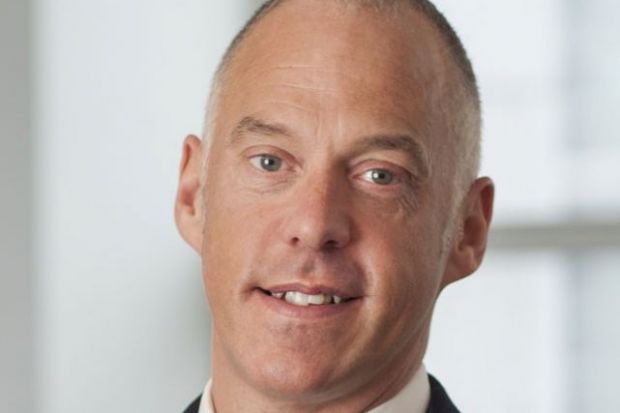LGBTQ scholars are increasingly progressing into the highest echelons in US universities but still face barriers including heteronormativity in the academic search process, according to the sector’s longest-serving gay university president.
Raymond Crossman, who took over the leadership of the Adler School of Professional Psychology in 2003, now has more than 100 current and former LGBTQ colleagues across the country, and argues that their life experiences and the stresses they have endured mean they have lessons to share that they feel the wider academy would benefit from hearing.
To this end, Dr Crossman has edited a new book – LGBTQ Leadership in Higher Education – in which he and 14 fellow leaders share perspectives on everything from personal and professional coming-out stories to how they have dealt with homophobic situations.
The percentage of LGBTQ college leaders in the US still remains small, Dr Crossman told Times Higher Education – fewer than 200 out of some 4,500 presidencies nationwide. This is due to various factors, including the conservative nature of search firms and boards of trustees, as well as the same kinds of structural oppression that affect people from racial minorities and women, he said.
The book – published by Johns Hopkins University Press – is an attempt by LGBTQ presidents to more assertively identify and explain perspectives that could help other presidential colleagues, Dr Crossman said.
It features contributions from Karen Whitney, former president of Clarion University in Pennsylvania, who describes constructive ways of engaging majority attitudes; and Terry Allison, former chancellor of Indiana University South Bend, discussing the importance of discovering feminism.
DeRionne Pollard, president of Nevada State College, and Nancy “Rusty” Barceló, former president of Northern New Mexico College, describe the interconnected nature of gender and other social categorisations that are used to discriminate, while several of the contributors describe their experiences integrating spousal relations within their communities.
In his own sections of the book, Dr Crossman sets out what he sees as the three most important perspectives he gained from growing up gay in a time where he was physically and psychologically bullied in childhood, then found himself caught in the horror of HIV’s arrival in the US.
“One is what I call ‘queer intuition,’ which is that you’re always scanning for danger, or wondering where a bully’s going to come from, or wondering how to fit in with a straight world,” he said. “It leads to a heightened sensitivity, and a prescience for what might be overlooked,” he said.
A second is the tendency among gay people, “or at least my generation of gay people, to reach for the fabulous”, Dr Crossman said. The third is “my willingness to be messy”, a result of constantly “trying to work things out in a heteronormative world without LGBTQ precedence”, he added.
Those characteristics, Dr Crossman said, have all benefited him in tough situations such as the 2015 decision to change the name and identity of his institution from a school of professional psychology to Adler University. It meant expanding into graduate programmes and adding fields such as public policy and public administration.
Some alumni and others in the community pushed back hard, Dr Crossman said. But the change went through, and the institution has since grown by more than 50 per cent, from 1,200 to 2,000 students.
“It was a big decision that paid off well,” he said. “And I see that at least in part as a function of the kind of leadership voice that I try to bring to my presidency.”
Register to continue
Why register?
- Registration is free and only takes a moment
- Once registered, you can read 3 articles a month
- Sign up for our newsletter
Subscribe
Or subscribe for unlimited access to:
- Unlimited access to news, views, insights & reviews
- Digital editions
- Digital access to THE’s university and college rankings analysis
Already registered or a current subscriber? Login







